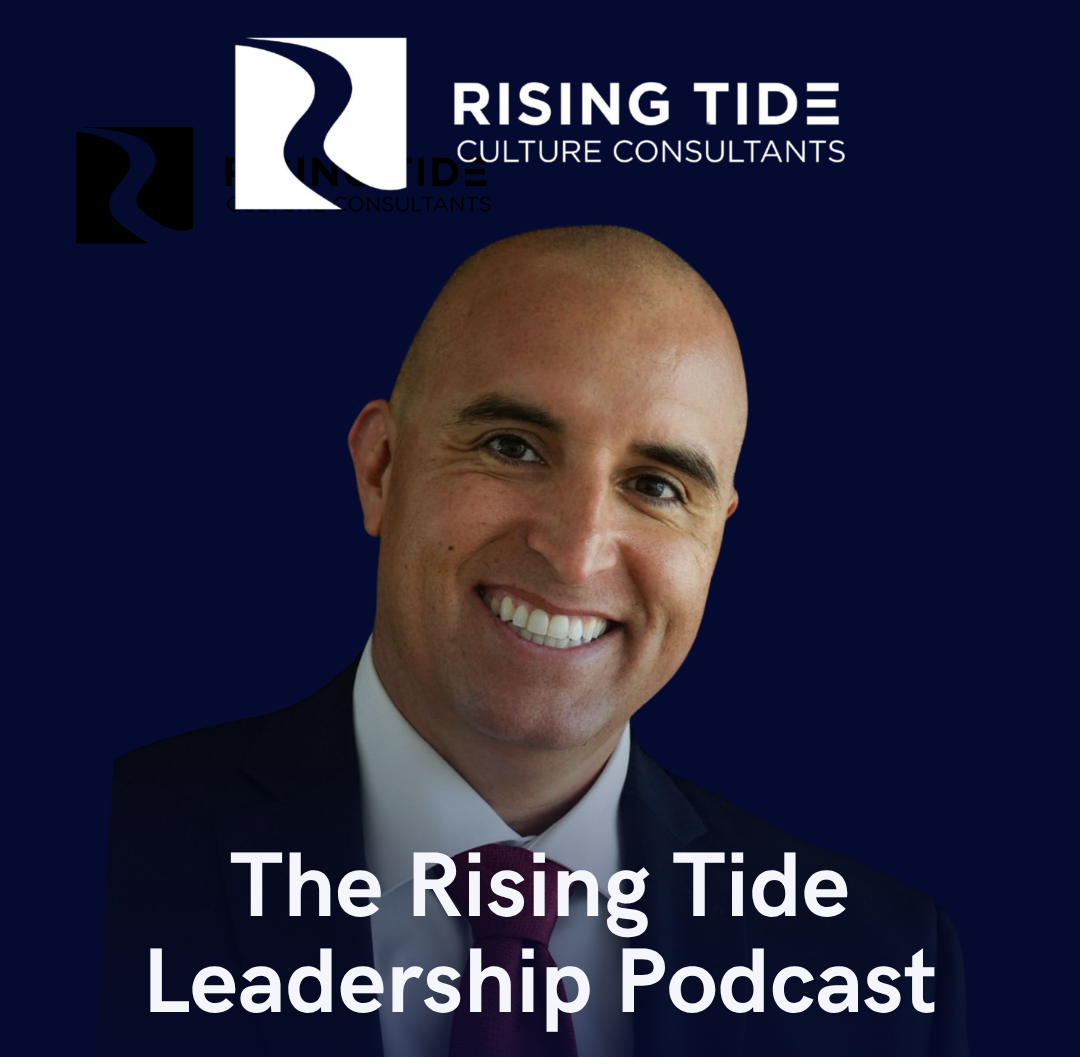Episodes

Monday Mar 17, 2025
How to Turn Big Ideas Into Action w/Marcelo Calbucci (Ep. 98)
Monday Mar 17, 2025
Monday Mar 17, 2025
Unlock the leadership framework top innovators use! 🚀 In this episode, Marcelo Calbucci reveals how Amazon's PRFAQ method can transform your ideas into action. If you're a leader aiming to drive results, align teams, and lead with clarity, you can’t miss this! 💡 Ready to sharpen your leadership edge and turn vision into reality? How are you ensuring your leadership decisions inspire action? 🤔
#Leadership #Innovation #Productivity #AmazonLeadership #StrategicThinking #Influence #DecisionMaking #Storytelling #LeadershipDevelopment #VisionaryLeadership

Monday Mar 10, 2025
How to Influence Difficult Bosses Like a Pro w/Eric Charran (Ep. 97)
Monday Mar 10, 2025
Monday Mar 10, 2025
Ever worked for a terrible boss? 😡 You’re not alone! In this episode, Eric Charran breaks down the 9 types of bad bosses and shares how YOU can thrive in a dysfunctional workplace. 💡 From panic-driven leaders to yes-men managers, we uncover what makes bad bosses tick—and how to handle them like a pro. Ready to turn workplace chaos into career growth? 🚀
Which boss type have YOU worked under? Drop it in the comments! 👇
https://www.linkedin.com/in/ericcharran/
#Leadership #BadBosses #WorkplaceCulture #ToxicLeadership #LeadUp #ThrivingAtWork #CareerSuccess #SelfAwareness #Influence #LeadershipPodcast

Monday Mar 03, 2025
How Emotional Intelligence Transforms Leadership (Ep. 96)
Monday Mar 03, 2025
Monday Mar 03, 2025
Great leaders aren’t just smart—they’re emotionally intelligent. 🚀 Emotional intelligence (EQ) helps you stay calm under pressure, build trust, and inspire your team. JFK mastered it during the Cuban Missile Crisis—can you master it in your leadership? Watch now to learn how EQ transforms leadership and unlocks your influence! 🎯 How well do YOU manage your emotions as a leader? 🤔
#Leadership #EmotionalIntelligence #EQ #SelfAwareness #CommunicationSkills #Influence #Success #Mindset #PersonalGrowth #LeadWithImpact

Monday Feb 17, 2025
Jim Carlough's 6 Pillars of Effective Leadership (Ep. 95)
Monday Feb 17, 2025
Monday Feb 17, 2025
🚀 What separates good leaders from great ones? Jim Carlough joins me to break down the 6 Pillars of Effective Leadership and share powerful insights from his decades of experience in business, mergers, and team-building. 🎯💡 Whether you're leading a team or just starting your journey, this episode is packed with wisdom! 🔥
Which pillar do YOU need to work on most? Let me know in the comments! 👇
#Leadership #JimCarlough #LeadershipDevelopment #SuccessMindset #HighPerformanceTeams #BusinessGrowth #LeadershipSkills #PersonalGrowth #EntrepreneurMindset #LeadershipPodcast

Monday Feb 03, 2025
Why Clarity Matters For Leaders (Ep. 94)
Monday Feb 03, 2025
Monday Feb 03, 2025
Unlock the secrets of leadership success by clarifying your vision and purpose! Drawing lessons from Admiral McRaven and other leadership giants, we explore how vision serves as your compass and purpose drives your journey. Learn how to inspire buy-in, craft a meaningful vision, and lead with authenticity. Are you ready to transform your leadership?
#LeadershipGoals #VisionAndPurpose #InspiringLeaders #LeadershipDevelopment #Motivation #TeamLeadership #InfluentialLeaders #ClarifyYourVision #LeadershipJourney #RisingTideLeadership

Monday Jan 20, 2025
Don't Quit On Your Goals: Hang in there! (Ep. 93)
Monday Jan 20, 2025
Monday Jan 20, 2025
🚀 Are your goals already slipping through your fingers? 💭 Don't worry—you're not alone. In this episode of the Rising Tide Leadership Podcast, we tackle the most common goal-setting mistakes and how to overcome them. From building habits 🛠️ to staying accountable 🔑, we’ve got the tips to keep you on track. 🌟 Ready to crush 2025? What’s one step you’ll take today to keep your goals alive? 🤔 Let us know in the comments! 💬
#LeadershipGoals #GoalSetting2025 #StayMotivated #LeadershipPodcast #SelfImprovement #AtomicHabits #SMARTGoals #MotivationMonday #LeadershipDevelopment #CrushYourGoals

Monday Jan 06, 2025
From Dreamer to Doer: Why Goals Matter NOW (Ep. 92)
Monday Jan 06, 2025
Monday Jan 06, 2025
🌟 Are your big dreams paving the way to success or keeping you stuck in wishful thinking? 🤔 In this episode, we explore how to turn vision into actionable goals and celebrate victories along the way. 🎯 Learn practical strategies to move from dreaming to doing and inspire your team to do the same. 🚀 Dreams inspire, but goals achieve. Are you ready to close the gap between possibilities and progress? 💭
#DreamBig #LeadershipGoals #TurnDreamsIntoReality #GoalSetting #LeadershipJourney #SuccessMindset #LeadershipTips #MotivationForLeaders #SmallVictories #LeadWithPurpose

Monday Dec 23, 2024
Leadership Across Generations: Insights from Kelly Soifer (Ep. 91)
Monday Dec 23, 2024
Monday Dec 23, 2024
🌟 Are you ready to lead across generations? In this episode, Kelly Soifer shares her incredible insights on coaching leaders from Baby Boomers to Gen Z. Learn how empathy, adaptability, and connection can transform your leadership game! 🚀💡 Don’t miss this fun, practical, and inspiring conversation! 🎙️
#Leadership #GenZLeadership #CoachingTips #MultigenerationalWorkplace #EmpathyInLeadership #LeadershipDevelopment #RisingTideLeadership
https://www.linkedin.com/in/kellysoifer/
https://ksleadershipdevelop.me/
More of MO:
www.rtclc.com www.youtube.com/risingtideleadership https://buymeacoffee.com/risingtide.mo https://podcasts.apple.com/us/podcast/rising-tide-leadership-podcast/id1546034213 https://open.spotify.com/show/2jUqyH9hTOamOIOAxcO6yH?si=9d0ff2c2b2ae4289 https://medium.com/@poorboymo

Monday Dec 16, 2024
Pastor David Bartosik's Leadership Secrets (Ep. 90)
Monday Dec 16, 2024
Monday Dec 16, 2024
🚀 In this episode of the Rising Tide Leadership Podcast, Pastor David Bartosik and MO dive deep into powerful topics like joy, trials, and leadership. Discover how to embrace challenges as opportunities for growth and cultivate happiness even amid life's toughest circumstances. Pastor David shares practical insights from Thomas Chalmers, John Piper, and his ministry journey. Whether you're a leader in the workplace, ministry, or life, this conversation will inspire you to lead with purpose and joy. 🌊 👋 Don’t forget to like, comment, and subscribe for more leadership inspiration! #Leadership, #FaithInAction, #FindJoy, #RiseAndLead, #podcast
www.youtube.com/hillcrestbiblechurchoregonwi
Material discussed in the episode:
https://www.desiringgod.org/about-us
https://hillcrestbiblechurch.com/sermons/commanded-to-be-happy
https://www.youtube.com/watch?v=YsgEtqm-oao&t=1535s
------------------------------------------------------------------------
More of MO:
https://buymeacoffee.com/risingtide.mo
https://podcasts.apple.com/us/podcast/rising-tide-leadership-podcast/id1546034213
https://open.spotify.com/show/2jUqyH9hTOamOIOAxcO6yH?si=663f5f8ef1e74bed

Monday Dec 09, 2024
How to Build Resilience and Adaptability in Leadership (Ep. 89)
Monday Dec 09, 2024
Monday Dec 09, 2024
🚀 What does it take to build unshakable resilience as a leader? In this episode of the Rising Tide Leadership Podcast, Mo and Scott dive into the secrets of emotional intelligence, experimentation, and continuous learning. 🌊 Learn how to stay calm under pressure, inspire your team, and foster innovation—even in the face of uncertainty. Whether you're leading in the boardroom, on the sidelines, or in everyday life, these strategies will transform your leadership! 💡
👉 Don’t miss the actionable tips and stories, including insights from Apollo 13 and lessons from top leaders like John Wooden and Elon Musk.
💬 Tell us: What’s your biggest challenge in staying resilient as a leader? Comment below, and let’s grow together!
📢 Don’t forget to subscribe, like, and share to help more leaders rise to their potential!

